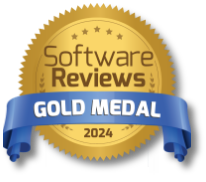Principle 1: Learn from the ancient Egyptians
Taking meeting minutes is an essential activity in all board meetings. But have you ever wondered why it is such a necessary task?
The reason finds its roots deeply in our biology and our psychology. To illustrate, let’s look at our history.
It’s human nature to forget things, and pretty easily too. Even before medical research confirmed that we forget over half of information fed to us after an hour, ancient civilizations from the Chaldeans and Egyptians have diligently recorded their history, their language, and laws into stone, long before the invention of ink and paper.
To the secretaries today, we advise that you take the meeting minutes with the outlook of an ancient stenographer etching symbols into stone: Write to remember the important points.
Principle 2: Record meeting minutes like picking mangoes
To be human is to digress. Discussions are very prone to straying off topic which makes it difficult for the minutes taker to keep track of the pertinent details.
In light of that, a more pressing question for secretaries today may be: How can I discern what the important details are? The following story helps answer the question:
One time, three boys were tasked by their mothers go to the local store to buy mangoes, which had to be sweet for the recipe to work. The first boy realized he didn’t know how to distinguish a sweet one from the rest. Afraid he would ruin the recipe, he decided to buy all the mangoes on the rack. He brought home many sweet mangoes, but also many sour ones.
The second boy also didn’t know how to choose, so he asked the storekeeper and the other customers which mangoes were sweet. They told him to pick from a pile of yellow mangoes and choose from there since yellow color is an indicator of ripeness. He chose a few and went home with a pile of generally sweet mangoes, but some were overripe.
The last boy had bought mangoes for his mother many times before. When choosing from the rack, he would pick a few mangoes – generally yellowish in color – and put his nose to the stem point and smell the fruit. If he smelled the familiar sweetness in the aroma, he would put in his small pouch. He went home with just the right amount mangoes, and all were sweet.
Each boy brought home sweet mangoes. The only difference was the efficiency and the accuracy of their approach.
Discerning the important details and points in a meeting similarly requires a good level of experience to develop, much like what the third boy has. But to the secretary who still needs guidance like the second boy does, here are some common items to consider:
1. The alternatives to a decision
2. The final decision
3. Vote results
4. Key reasons for a choice
5. Action items
6. Key changes to policy/strategy/budget
If you’d like to be sure you don’t miss anything, you can transcribe/record the entire meeting just like the first boy did. This is actually mandatory in certain cases like in a legal-related discussion. In time, you’ll know what parts are necessary and what parts you can exclude.
Principle 3: Adopt a futuristic approach
Though there are lessons to be learned from the distant past and the present, secretaries need to look into the future and keep in touch with the latest innovative technology available for taking meeting minutes.
As mentioned earlier, the human mind is only able to retain some of the information fed to it. After one week, we lose 75% of the information we were exposed to at that instance. This is why the meeting minutes need to be sent to the participants ASAP to remind them of the important deliverables and discussions covered by a recently ended meeting. In doing so, they are also consolidating in their memory of what has transpired.
The top-class meeting management solutions such as Convene offer an integrated minutes-taking tool app built into the system. They provide a module for transcribing dialogue especially during video conferencing while also automatically taking stock of and notes, comments, action points and vote items shared during the meeting.
Darren is the Content Director at Convene. Driven by his passion for content writing and knowledge of digitalization, he takes pride in providing content that helps drive digital transformation. Over the years, he has written blogs related to digital meetings, board management, and modern governance.










